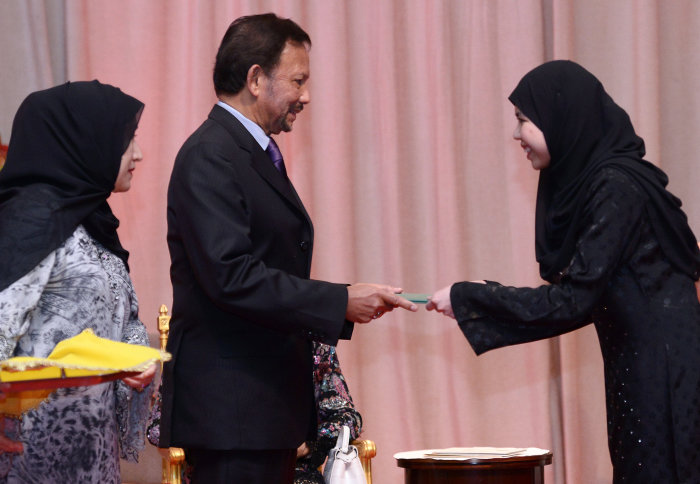Student awarded Chancellor's Scholar for hay fever research by Sultan of Brunei

Hanisah Sharif has been awarded the Chancellor's Scholar for research on hay fever she is conducting for her PhD with Dr Mohamed Shamji.
Although it may not feel like it with the freezing temperatures and snow flurries, the coldest week of the year will soon be behind us, which means spring is (hopefully) slowly approaching.
Though many will be glad when the days are lighter and longer, for around every one in five people in the UK, the spring and summer months won’t come as such a relief. As when the warmer weather begins to roll in, hay fever does too.
"This is a fantastic achievement for Hanisah and we are all very proud that her work has been recognised accordingly" Dr Mohamed Shamji Senior Lecturer in Immunology and Allergy
Hay fever, also known as allergic or seasonal sinusitis, is a chronic respiratory disease caused by an allergic reaction to pollen, commonly from grass, trees or weeds. There are a number of symptoms from itchy, watery eyes to blocked, congested noses. Although there is currently no proven cure for hay fever scientists are trying to find ways to alleviate people’s seasonal suffering. Dr Mohamed Shamji, a Senior Lecturer in Immunology and Allergy with the National Heart and Lung Institute (NHLI) has a specific interest in respiratory allergies. In particular how disease-modifying treatment such as allergen immunotherapy (desensitisation via exposure), and immunomodulators (medication used to help regulate the immune system) effect our immune system’s response to allergens and are related to immune tolerance.
One of Dr Shamji’s current PhD students, Hanisah Sharif, has recently been awarded with the Chancellor’s Scholar for her research on the mechanism of allergic sinusitis and what happens in severe cases of the condition. The Chancellor’s Scholar is a prestigious award granted by the King (Sultan) of Brunei who is also Chancellor of Universiti Brunei Darussalam.
A proportion of individuals who suffer from hay fever don’t respond to standard medication, and therefore immunotherapy can be offered to them instead. Hanisah’s PhD investigates what happens in the blood of patients, before and after, allergen specific immunotherapy treatment. She tells me, “I’m investigating the differences in T cells in those who are affected by hay fever and healthy individuals, and looking into how immunotherapy can result in tolerance in severely allergic individuals”.
 The Chancellor’s Scholar is a scholarship awarded to Brunei citizens under the age of 28 who have demonstrated strong academic achievement and is only awarded to two students every year. The award was founded in 2011 to support the education of Brunei students living overseas. After completing their studies, students will return to Brunei to further contribute towards the country’s economic growth and development, as set out in the Brunei Vision 2035.
The Chancellor’s Scholar is a scholarship awarded to Brunei citizens under the age of 28 who have demonstrated strong academic achievement and is only awarded to two students every year. The award was founded in 2011 to support the education of Brunei students living overseas. After completing their studies, students will return to Brunei to further contribute towards the country’s economic growth and development, as set out in the Brunei Vision 2035.
Hanisah will also be presenting a poster at the American Academy of Allergy, Asthma and Immunology / World Allergy Organisation congress at the end of this month. This is a key event in the field of allergy and immunology where academics can come together to share ideas and research. Hanisah’s work has been selected as a ‘featured poster’ and covers her research completed as part of her PhD so far. Dr Shamji says, “this is a fantastic achievement for Hanisah and we are all very proud that her work has been recognised accordingly”.
Article text (excluding photos or graphics) © Imperial College London.
Photos and graphics subject to third party copyright used with permission or © Imperial College London.
Reporter
Miss Lizzie Lomer
National Heart & Lung Institute